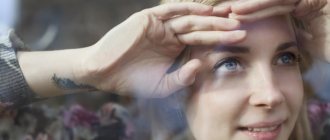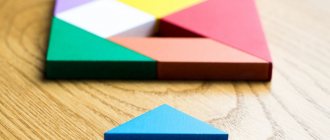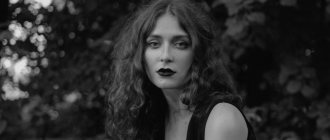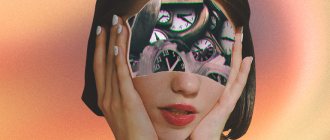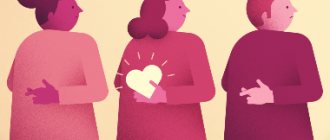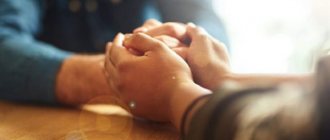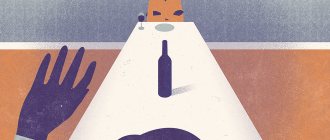One day, a monk exploring the depths of Zen Buddhism went on a rainy evening to a famous Zen master to gain wisdom from him. At the entrance, according to the rules of decency, he took off his shoes, left his umbrella and went in to see the teacher. “Tell me everything, oh wise teacher!” he greeted the master. And he asked: “When you came in, did you leave the umbrella to the right or to the left of your shoes?” The monk hesitated, and the master told him to go home and return only when he not only looked, but also realized.
“Not only to look, but also to realize” is the basic principle of observation, and if the poor monk had paid more attention to the mortal earth, and not to the heavenly philosophical distances, then he would have had a chance to talk with the master. Indeed, mastery in any matter largely relies on observation, because it is this that gives us information and food for thought.
Don't despair if you consider yourself an unobservant person and can't remember which stores are located on the way from home to work or what style of shoes your colleagues prefer. Observation is the same muscle (not in the literal sense, of course), which can be “pumped up” if you constantly load it, starting from small tasks and moving on to complex ones. In addition, general exercises for the development of the brain and memory will also be useful, since the more flexible and perfect our mental activity, the more observant we can become. Good observation helps us better understand each other's emotions, learn more information, learn faster and compare facts. With its help, it is easier for us to communicate with other people and, let’s be honest, do our job better and advance in our careers faster.
Tips for every day
Study to the smallest detail everything you encounter during the day, especially something new. If you go for a walk, study the route thoroughly, take an interest in the buildings or trees around. Imagine filming everything with a camera built right into your eyes, and using it to collect information for a historical chronicle.
Don't let your brain stagnate and switch to routine mode, when some things are done in a semi-automatic mode. Try to diversify even the most boring process, then it will be easier to remember any details.
Remove or isolate all irritating distractions. The more distracted you are, the less you will be able to see. Try to pay attention to colors and their shades. In general, the more different shades a person can distinguish and identify, the more perfect his brain is. Take a color course, make sketches if you can, and make color associations with objects and phenomena. For example, if you don’t like a certain colleague, then remember everything connected with him, associating him with the color red or your least favorite color.
Thinking training
The most spontaneous answer to the question of how to become Sherlock might sound like this: “First, buy yourself a black coat.” If we use the terminology of the American psychologist, Nobel laureate Daniel Kahneman, who published the book “Thinking Slowly... Decide Fast” in 2011, this is a reaction of the so-called “fast thinking” - a system that is responsible for momentary knowledge of the world and cataloging instinctive sensations. “Fast thinking” reacts to circumstances instantly and very directly, as a result of which it often makes mistakes, forcing us to make irrational decisions.
But in order to think like Sherlock Holmes, you need to use a different system - “slow”. It is she, according to Kahneman, who is responsible for the deliberate and conscious formation of thoughts, decisions, conclusions and assessments. Like any function of the human brain, the slow thinking system can be strengthened and developed.
As in sports, training should begin with light exercises in small quantities, gradually moving to more complex and longer ones. To begin with, you can borrow several school textbooks from friends in different subjects: mathematics, physics, chemistry and other disciplines that involve solving problems. This will help not only to train the slow thinking system (after all, it is this system that is used in the process of intellectual activity), but also to broaden one’s horizons, restoring knowledge lost since schooling and identifying interesting scientific areas for study.
With proper organization and planning, a home office is not a punishment, but an opportunity. For business - to save resources, for employees - to get rid of the feeling that life is passing by. If you do not neglect the rules of the organization, learn management from a distance, use modern technologies and systems, you can set up an effective home office for employees in just one day. More about the BeeFREE solution from Beeline Business at the link.
Corrosiveness is another quality required by a future master of deduction. To cultivate it in yourself, you need to find areas that truly arouse curiosity. What exactly they will be, by and large, does not matter: an emotional response always pushes a person to deeply study a subject, forces him to constantly increase the amount of knowledge, and with it the extent of the border of contact with the unknown, the existence of which invariably prompts the mind to new searches.
Exercise "Gotcha!"
Take in your hand an object that you see for the first time. Look at it, then put it away from your eyes and write down all the details that you could remember about it: color, size, details, little things. Then return the item and compare it with what you wrote down. Forgot something? Or maybe she got it mixed up? Our brain has an interesting property: if it doesn’t remember something, but we “push” it, then it can fabricate a fake memory, which we will accept at face value. So we can convince our interlocutor until we are hoarse that we saw a mutual friend in a blue tie, although he was wearing a purple one.
Complicate the subjects every time you successfully complete the task. If at first they should be simple, then they should become more and more complex with more details. You can even try to remember the appearance of entire people, the interior of rooms and the facades of buildings when you practice properly.
Organize your workspace and your home
Clutter at work or at home can cause anxiety and stress. Getting organized is an easy way to reduce stress and improve your quality of life. Also, in the process of organizing, you improve your attentiveness, since you have to sort out each of your things separately.
Exercise “Photo sketch”
Remember the people you know best: family, loved ones, best friends. Imagine that you need to make an identikit of them for some purpose. Just don’t imagine the outright negative: none of them are lost and they are not looking for him on the city streets. An identikit may be needed, for example, to describe a friend in a story or a joke.
It is difficult to do this without proper training, even if we remember the person well. As soon as you can describe loved ones in words, move on to unfamiliar ones, and then to complete strangers. At the same time, practice describing the emotions you read on their faces. This will also be useful.
Situational awareness as a preventative tactic
Animals tend to attack other creatures if they appear vulnerable. Lions will first target younger, sick or older gazelles because they are easier to catch. The same thing happens with people. Criminals will usually target the person who appears most vulnerable and physically weak because they will be the easiest to take by surprise.
Practicing situational awareness will help you avoid being an easy target. When entering a new environment, always be alert. Take a break from your smartphone. When walking to your car at night, immediately have your keys ready and constantly scan your surroundings. The less vulnerable you appear, the less likely the bad guy is to want to deal with you.
Here's another tip to avoid looking like a victim: always carry a tactical flashlight with you at night. Having a light source will allow you to see your surroundings much better and will also act as a deterrent to the bad guys. If you shine a flashlight on your way to your car, thieves will likely think you're a police officer and won't bother you. If things go wrong, you can use the tactical flashlight as a defensive tool, blinding your attacker with a bright beam of light or striking them like a small baton.
Exercise “Mom is sleeping”
Imagine that your mother is very tired and sleeps next to you on the sofa. You don’t have headphones, but you really want to watch some video. What would you do as a child so as not to wake her up? That's right, I would use my imagination and watch everything with the sound off. This can be done now, just use observation rather than imagination.
Choose a short video or scene (comedy ones will be most useful to begin with) and by facial expressions, surroundings, location and other details, try to understand what kind of action is happening in the video, what the characters say to each other and how it can all end. Then watch the video and note what exactly you were able to predict and why.
Watch your breath
Spend just a couple of minutes a day on this. Inhale longer than usual, then exhale longer. Often decisions are made based on emotions, which is more likely to lead to an undesirable outcome. This practice in such moments will help you calm down, cope with your emotional state and make a rational decision.
What is it for
The destruction of society, the destruction of relationships between men and women and the capitalist world itself, which is happening today, is very dangerous. The danger lies in many, many possible scenarios and consequences. I suppose such destruction scenarios could be:
- Voluntary withdrawal from the responsibility of the current president, a change in the political system, for Russia, this is the bloody scenario of 1917. With possible signs of a revolutionary moment and a mass desire to return to Socialism. Probable scenario from today's date 2 years.
- The destruction of the mental consciousness of society, the gradual fall of people into Plebeianism and Bydlot. The subsequent beggary of the entire people. The collapse of the consumer and mortgage lending pyramid, with the subsequent impoverishment of the middle class and a decline in living standards. Mass unemployment, deflationary loop. Decreased standard of living with a 70% drop in income. After this, a bloody transition to Socialism. Probable scenario from today's date 5 years.
- Nuclear conflict, local and turning global. - probable scenario from today's date 5 years. Destruction of 90% of the Russian population and a 50% reduction in numbers globally. Gradual recovery, a new long recovery of the economy and life. Probable scenario from today's date 7 years.
- A gender war of the sexes between a man and a woman, the destruction of families, relationships between the sexes in order to reduce the birth rate and subsequent easy clearing of the territory is a likely scenario from today's date 15 years. It has already begun; how catastrophic the consequences will be depends on the country’s leadership.
- The Muslim Yoke is a direct conflict with the Muslim world and Islamist fighters, introduced by agents in the form of Chechen, Tajik, and Kyrgyz diasporas controlled from outside. - a probable scenario from today's date 20 years.
The destruction of society and a gradual decline into poverty may be associated with the transition to a period of anarchy in power. Therefore, it is important to train your own powers of observation.
Observant people notice more than others. The world around them is revealed differently to them. For an observant person, the senses provide much more information to the consciousness for analysis and cognition. The world opens up to those who can see.
How to become more observant
Observant people notice more than others. The world around them is revealed differently to them. For an observant person, the senses provide much more information to the consciousness for analysis and cognition.
The world opens up to those who can see.
How to educate or develop your powers of observation? Try the following recommendations.
1. Consistently increase the amount of observed detail
Turn on the movie and wait for some intense scene (say, a lot of cars slowing down at a traffic light or colliding in an accident). Press pause or freeze frame. Then look away from the screen and try to answer the following questions:
- How many cars are there in the frame?
- What models?
- What color are they?
- Who are the drivers - men or women?
- What are their facial expressions?
- What are the car numbers?
- How many people were standing on the street?
- How many of them are men and women?
- What age?
- What are you wearing, hairstyle?
- Facial expressions?
Now look at the screen and check the accuracy of your observations.
Change the scene. Another stop at a traffic light, an accident, a crowd of people at a party, in an auditorium. Make a similar list of questions and practice in the same way.
Change scenes periodically and ensure that you can capture as many small details as possible the first time.
At the same time, train your auditory perception. Footsteps are heard outside the window. Determine from them who is walking - a man or a woman, what age, etc. Look out the window and check your observations. Formulate the differences in the sound of the steps of a man, woman, child, elderly person, etc. Based on the person’s intonation, determine his mood and attitude towards you. Find out for yourself what signs you did this on.
2. Expand the fullness of the first impression
Let's say you are crossing the street at an intersection. Cars slowed down at a red light. Take a look at them, take a closer look. After you have crossed the street, try to reproduce what you saw in your memory and answer the same questions as in the previous exercise. Practice to achieve a more complete and detailed recording of what you see.
Another variant. You enter a familiar classroom or office where several people are already present. Within 10-15 seconds, take a closer look and take in the room with your gaze. Then distract yourself, sort of go inside yourself and try to answer approximately the same questions: how many people, men, women, what age, what are they wearing, facial expressions, what has changed in this room since the previous time? After this, check the accuracy of your observations. While practicing, gradually reduce the observation time to two or three seconds, but achieving the same completeness and detail.
3. Practice constant observation skills
Make it your goal every day to notice smaller and smaller details and, based on them, penetrate deeper into the essence of the person or inanimate object that you observe.
Determine who you can monitor daily:
– younger brother or sister; – your work colleague or boss; – indoor flower, etc.
Observe the subject as a whole. Fix what you already know about him as a starting point.
Then begin to notice smaller and smaller manifestations: how does your brother or sister, colleague, boss communicate? Or how they work, how quickly they get along with strangers, what techniques they use to maintain good relationships, which is why their mood drops. What is the nature of their relationships with other people, how many friends and enemies do they have? What common words and phrases do they use in communication? Do they skillfully use intonation, facial expressions, and gestures?
Try to keep it all in your memory without burdening yourself with notes.
4. Practice pattern observation skills.
The tasks and techniques are similar to the previous exercises, but the approach is slightly different. Observe one detail in three to five to ten people. Quickly note what these individuals have in common, and immediately turn your attention to their differences. Over time, you will accumulate so much information about the typical thoughts and actions of people that you will only have to look at a person and you will already see right through him.
5. Learn to observe naturally
It would seem like a trifle: what do you look like when you watch people? Do you fixate your gaze and stubbornly, without looking away, keep it on what you observe?
It’s just not worth doing this. First of all, you must admit that you look pretty stupid at such moments. And secondly, the person being observed may react to your unwavering gaze with aggression. Therefore, observe naturally: without casting a sharp glance at the person and without straining your facial expressions. Observe during normal conversations without anyone even realizing it. It is under such conditions that the greatest depth of observation is achieved, followed by insight.
Identify any strange sounds or smells.
Instead of ignoring new sounds and smells, try to guess what they are. If possible, examine the source to see if you were right or wrong.
For example, if you smell something, guess what food it is. Does it smell like meat, spices or baked goods? Is he close to you, weak and distant?
If you hear a knocking noise, assess your surroundings. Is it coming from a certain wall? Is it a consistent step or an erratic rhythm? What can someone do to create noise?
